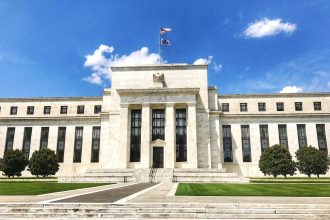Key takeaways
- Early withdrawal penalties typically range from 90 days to 365 days’ worth of interest.
- In some cases, paying that penalty can be smart – especially if you need money for a major unexpected expense.
- Building a CD ladder or comparing no-penalty CDs can help you avoid the worry about forfeiting interest if you need access to cash earlier than you planned.
With higher rates than some savings accounts, and FDIC or NCUA insurance, certificates of deposit (CDs) are a great, low-risk option to grow your money. However, traditional CDs require you to keep your money in the account for a certain amount of time. CD terms typically range from a few months to five years, even longer. If you withdraw money from the CD before the term ends, you likely will have to pay an early withdrawal penalty.
If you’re thinking about dipping into your CD funds before the maturity date, here’s a rundown of why making an early withdrawal might make sense. And if you haven’t opened one yet, read on to figure out how to steer clear of ever worrying about paying a penalty.
What is a CD early withdrawal penalty?
Part of the process of opening a CD at a bank is choosing the term, which is the length of time you agree to keep your money in the account. It’s like making a promise to the bank that it can hold onto your money for that duration of time.
If you choose to withdraw money from the CD before the term is over, you’re breaking your promise to leave the money in the account. As a result, you’ll usually have to pay a fee called an early withdrawal penalty.
The penalty for early CD withdrawal
The size of the penalty you have to pay will vary based on a few factors, including:
- The bank: Each bank sets its own early withdrawal penalties. Before you open a CD, it’s worth checking the fine print to see how much the bank will charge if you make an early withdrawal.
- The CD term: The term of the CD tends to impact the early withdrawal fee. In general, the longer a CD term, the bigger the penalty.
- The yield: Most banks charge early withdrawal fees based on the annual percentage yield (APY) the CD pays. You might see CDs with penalties of 90 days of interest or 180 days of interest. That means the balance of the CD and its interest rate also impact the fees.
- Whether you can make a partial withdrawal: Some banks will allow a partial withdrawal, which means you may only wind up paying a fee on the portion of money and interest you take out early, but others will force you to take out the entire sum.
Withdrawing money early from a CD is one of the few ways to lose money that’s in an FDIC-insured account. For instance, say a CD charges a penalty of 180 days of interest. If you make a withdrawal three months after you opened the CD, you’ll forfeit all of the interest you’ve earned and pay the rest of the fee out of the principal you deposited.
Here are some examples of standard CD early withdrawal penalties.
| Financial institution | 5-year CD | 3-year CD | 1-year CD |
|---|---|---|---|
| Ally Bank | 150 days of interest | 90 days of interest | 60 days of interest |
| Bank of America | 365 days of interest | 180 days of interest | 90 days of interest |
| Capital One 360 | 6 months of interest | 6 months of interest | 3 months of interest |
| Bread Savings | 365 days of interest | 180 days of interest | 180 days of interest |
| Discover | 18 months of interest | 6 months of interest | 6 months of interest |
To calculate the amount you’ll pay in an early withdrawal penalty, determine how much interest you’re earning in a day or a month, and then multiply that amount by the number of days or months of interest you forfeit.
When is it a good idea to make an early withdrawal on a CD?
In many cases, it makes sense to leave your money in a CD for the full term to avoid having to pay the early withdrawal penalty. However, there are times when you decide paying the penalty is worth it.
One example would be when you need the money to cover an emergency expense. If your car breaks down or you’re facing a medical bill you can’t otherwise pay, it’s often better to take the hit and use the money in your CD to pay the bill. Not paying the emergency expense could cost you more than a CD penalty: It could end up costing you interest and damage your credit. Alternatively, if you’re going to wind up covering that expense with a credit card with a 20% or higher APR, getting the funds from your CD can be a better move that helps you avoid high-cost debt.
Another case when an early withdrawal from a CD is worth it is to make a down payment on a major purchase, such as a home or car. A bigger down payment reduces the size of your loan, which means you pay less interest. A CD early withdrawal penalty may be paltry in comparison with how much you could save by taking out a smaller mortgage or auto loan.
When rates rise significantly
When you open a CD, you lock in the interest rate for the entire term. If you open a CD when rates are low and rates then rise in a big way, it may be worth breaking your CD to secure a higher rate.
For example, let’s say that breaking your current CD will result in a $25 early withdrawal fee. However, you might find that a new CD with a higher APY will ultimately earn you $75 more in interest than the original CD. You’d come out ahead by making the early withdrawal and opening the new CD.
How to avoid early withdrawal penalties
You can still open a CD while minimizing the potential that you’re going to wind up paying to access the funds. Here’s how.
Build a CD ladder
Instead of opening just one CD, think about building a CD ladder to diversify your deposits. With a ladder, you can spread out your funds across multiple term lengths, which helps you accomplish two key goals. First, you’ll be able to take advantage of multiple interest rates, and second, you’ll always have a chunk of cash that is relatively close to maturity.
For example, rather than depositing $15,000 in a 3-year CD, a ladder might spread out five chunks of $3,000 in five term lengths: 6 months, 9 months, 1 year, 2 years and 3 years. Rather than feeling like you need to withdraw all the money and pay a hefty penalty on a 3-year CD, you can use the money when the 6-month CD matures.
Consider investing in a no-penalty CD
No-penalty CDs offer the benefits of traditional CDs: locked-in interest rates and higher rates than many savings accounts, but with fewer downsides. That’s where the name comes into play: There is actually no penalty.
Note, however, that no-penalty CDs often earn rates that are lower than traditional CD rates. But the benefit of greater liquidity may outweigh the cost of a slightly lower rate.
Avoid investing money you may need to access
It’s important to remember that when you open a CD, you’re making a commitment to keeping your money in the bank. While most CDs are FDIC-insured, you should consider them an investment.
A top piece of advice when investing in the stock market is to only invest money you can afford to lose. Similarly, a best practice with CDs is to only deposit funds you can afford to part with for a set amount of time. As such, it’s best to have a well-established emergency fund before putting money into a CD.
– David McMillin contributed to updating this article.
Read the full article here
















